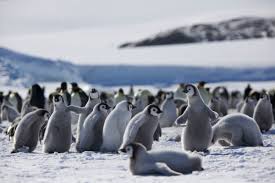Animal Ecology & Physiology
Animal ecology is a majority of the creature life of a specific region or time. Understanding qualities of individual living beings clarifies examples and procedures at different levels of association including populaces, groups, and environments. A few ranges of nature of development that attention on such qualities is life history hypothesis, Eco physiology, metabolic hypothesis of biology, and Ethology. Cases of such qualities incorporate components of a life forms life cycle, for example, age to development, life traverse, or metabolic expenses of propagation. Animal physiology is the science of study of the life-supporting properties, or more specifically the physical and chemical processes that occur within animals. It is the key discipline for understanding the fundamental biology of all animals. This discipline also covers key homeostatic processes, such as the regulation of temperature, blood flow and hormones. Examples of these processes are gas exchange, blood and circulation, osmoregulation, digestion, nervous and muscle systems and endocrinology.
- Micronutrients
- Macronutrients
- Embryonic Growth
- Reproductive Physiology
- Factors that Reduce Growth
- Description of Tissue Types


